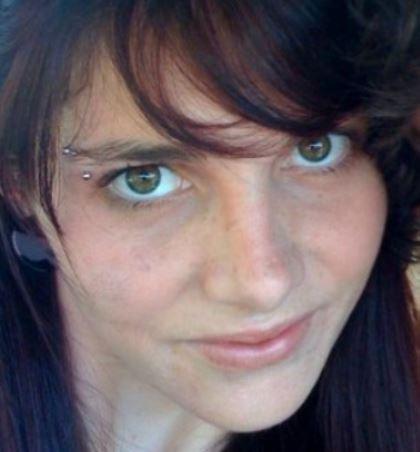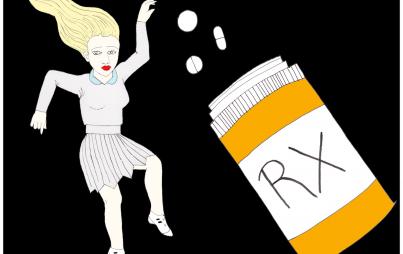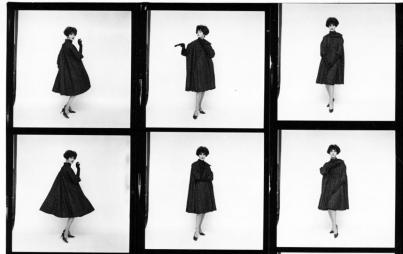
Addiction isn't an easy subject to talk about. Even those among us who don't believe it's morally wrong to take drugs, stigmatize those who become addicted to them. Addicts are often relegated to a realm of intrigue but condemnation, operating in a vulnerable and misunderstood subsection that we don't belong to—and possibly don't even want to understand.
Chelsea Carmona is an addiction activist and program manager for the OpEd Project, an organization dedicated to changing the demographics and landscape of public discourse. Currently, white, Western, wealthy men comprise 90% of contributors to key opinion forums; 84% of TV pundits on Sunday morning talk shows; 85% of Hollywood producers; 83% of Congress; and even 87% of Wikipedia contributors.
In short? "Public debate all but excludes half the population."
In addition to doggedly expanding the OpEd project, Carmona is working on a new book to combat the damaging social narrative we've created around addiction. She is working to open up the conversation about treatment options and evidence-based care, especially for women.
We sat down with Chelsea to talk to her about her book, Escape Artists, how feminism plays a surprising part in addiction treatment and her ongoing role at the OpEd Project.
Where are you from originally? What was life growing up like for you?
I grew up in Irvine, CA and it’s the kind of place where people in the area are like, “Oh, you’re from Irvine?” It’s in Orange County and for the ninth year in a row, Irvine is the place in the U.S. with the lowest per capita crime rate. It's certainly a lovely place to grow up in the sense that there’s a lot of emphasis on family and kids. That being said, it is a very conservative place, and has clear boundaries of what is and isn’t acceptable behavior, language and dress. I found that it was a difficult place to explore my identity. I think that’s the case for a lot of teenagers, but I really felt it there.
What made you want to pursue addiction activism?
I think there’s a lot of different turning points in my life that made my interest in addiction stronger, but what makes me different than a lot of other people writing about addiction is that I began studying the topic long before I started using. The drug war kept coming up in school and the policy issues that I was learning about in class were so fascinating, it just felt like a dirty little secret in our country. It made me question everything I had ever learned about drugs—I think this is common for a lot of sheltered kids. I was a high achiever and Adderall was really common. I started taking it to stay up and study. Using it with other kids I knew and made me feel like it was less of a big deal.
Your new book, Escape Artists, is about the closing gender gap in addiction. What does the gender gap in addiction look like? What, in your opinion, could be a possible solution?
I’ve been working on a hybrid memoir. We have a deeply entrenched narrative of drug addiction in our culture where we really believe that recovery is a sudden, spiritual awakening brought on by a spontaneous moment of clarity; all of the drug addiction memoirs have perpetuated this narrative and I believe it's counter-productive. I’m hoping to put something out there that is more accurate.
What I would like to be the sub-story is that we have a shrinking gender gap in addiction. It's time we take into account the gendered experiences throughout addiction and create a more comprehensive view. There’s lots of potential solutions. Feminist thinkers and scholars have been writing about addiction for decades, but it hasn’t made it to the forefront of the mainstream feminist agenda. For example, in the 12-step program there is a step that asserts powerlessness as liberating. This of course has been viewed with a great deal of alarm by feminist thinkers. Many women who abuse chemicals do it because they feel powerless over their bodies.
Could you talk a little bit about your own experience with addiction . . .

It’s important to talk about the reality of recovery. We’re so often exposed to this dramatic and depressing story, and that narrative of addiction is tired. I’m in the process of writing this book right now and it’s been sort of an investigative endeavor for me because I lost 6 years of my life. I had to interview people around me to ask, “What happened?” It’s a complete and utter fog. Things that I thought were true are not true, medical documents say things that prove my memory wrong and it’s really interesting.
I think my struggle with addiction was much longer than it needed to be because of the way our healthcare system deals with addiction now. We have an “acute care model.” In this country we consider addiction a medical condition but we don’t treat it that way. A surprising number of addiction specialists ground their expertise in personal experience. Can you imagine if we treated any other medical condition that way?
You wrote a really great piece about your personal journey to sobriety and your struggle with Alcoholics Anonymous that was published in the Washington Post. Was writing this piece, (which is largely about how the AA system sort of failed you as an addict and re-labeled you as an alcoholic) part of your recovery process?
I would write that piece differently today, and in fact I did. I wrote the same idea with a different argument for Time Ideas after having more experience with the media. I had to ask myself, “do you want to change the world or do you want to preach to the choir.” When I wrote that piece I was newly sober and newly writing and it was a great experience, but what I really wanted to say was that this "one size fits all" treatment that reigns supreme may not work for everyone, and we need to offer other options.
It wasn’t as much a part of the recovery process, but learning how to be a good advocate for what I believe in. I learned that I should not lead with my story and should use it as an asset when it’s an asset, and not when it’s not.
What was your final push to get clean?
Hands down it was the combination of meaningful work and long term evidence-based care.
Did you deal with gender disparity when you were in treatment?
Not as much as when I was in treatment as when I was using. Life is not easy for a female addict for what are probably really obvious reasons. But when I started reading about the gender gap in addiction, treatment came up a lot. It was really fascinating and it made me wonder, why we never see it in feminist media outlets. Why am I not hearing about addiction as a feminist issue?
Would you consider yourself a feminist?
Absolutely, I think we need to empower addicted women. I think we need to stop making it a requirement for addicted women to assert their powerlessness in order to be in recovery. I never really thought twice about feminism until I got into addiction activism and realized that so many classic feminist arguments about women’s health are framed exactly like my argument about addiction.
Biochemically we are so vulnerable to addiction, we get higher faster and drunker faster and we get addicted faster—but I have never seen addiction in a women’s magazine.
Do you think that it is missing from the feminist conversation because we assume that there are options?
Yes of course, people typically refer a friend or family member struggling with addiction to AA or NA. It’s not a bad thing to do, it’s the social norm. The problem is that it’s also a medical norm. When you go to a hospital, a doctor, or the criminal justice system, they also refer you to AA.
What do you think the greatest misconception surrounding addiction is?
There are so many, but “what constitutes treatment?” would be my choice. We currently have a medical system where we treat addiction with acute, abstinence-based care. In a national survey, when asked about the type of treatments are available for addiction, I think 60% of respondents spontaneously offered AA and NA. It’s not a problem because AA isn’t effective, it’s a problem because it’s not evidence-based addiction care on it’s own. AA is a support group, not a medical solution.
How did you come to be a part of the OpEd Project?

I got involved almost by accident. I graduated from college the year that the market crashed and suddenly I was really struggling to find a job. I was looking for things that were meaningful—things that were not using drugs.
When I first took an OpEd Project seminar, I felt totally out of my league. I was the youngest by maybe 10 years and everyone was talking about what they were an expert in. Honestly, I was looking for the door, just ready to bolt. Then the facilitator for the program, Zeba Kahn, worked with me and really encouraged me. They left me with this sense that I could do it—I could have a voice. That, coupled with this naive grandiosity I think comes with being a millennial and an addict, worked for me. I just pitched and pitched and pitched and didn’t take no for an answer. Katie Orenstein, OpEd Project Founder and CEO, picked me up to manage our programs on the West coast, our core seminars for the public, and eventually our year-long intensive programs.
What does your typical day look like?
When I first came on board it was difficult because I had essentially lived in a room for several years alone, isolated all day. It was exciting though—I had just discovered this program that would allow me to have a voice in a really effective and meaningful way.
Right now I spend more of my day managing our Public Voices Fellowship program, a year-long intensive program, aimed at dramatically increasing the public impact of a core group of underrepresented thinkers. We have these programs at top institutions including Yale, Dartmouth, Northwestern, Emory, Stanford, and Princeton. We also have community-based initiatives combining scholars with activists in Tucson and at Texas Woman’s University.
It’s thrilling to be part of a group of impact leaders, and to be in the room with that sort of brainpower. I feel lucky to have been this very lost young person struggling with addiction and to have someone like Katie Orenstein invite me to be part of such a massive "change the world" initiative.
If you had a megaphone to the world where you could offer one piece of advice for those struggling with substance abuse . . . what would you say?
Question everything. Don’t listen to people whose only source of credibility is that they had an addiction or know someone with an addiction. Listen to people who can cite the research. Fuck the stigma.
You seem like you’re always writing, but what are you reading right now?
I just finished a book called Mistakes Were Made, But Not by Me by Carol Tavris. It’s really interesting. It's about why we justify foolish beliefs, bad decisions and reconstruct our own memories and our own history.






